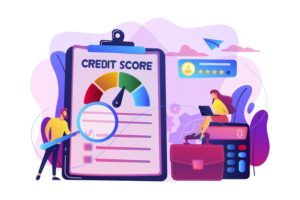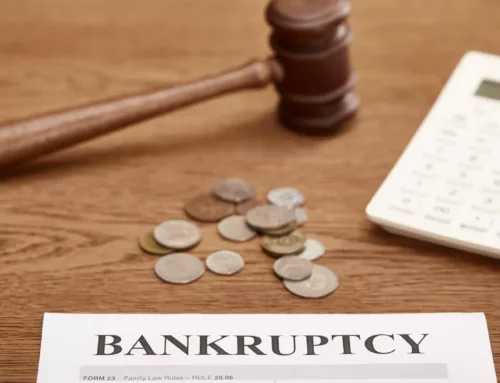Are you worried about your credit score after filing bankruptcy? Though your FICO score usually dips after you filed bankruptcy, there are various credit rebuilding strategies to consider that don’t necessarily require you to use credit or get a new card. Below you will find the most popular ways to reestablish your credit score, regardless if you declared a Chapter 7 or Chapter bankruptcy.
Understand Your FICO Score
The Fair Isaac Corporation created the standard for what is now referred to as FICO scores. Your score reflects your financial capacity to get different types of loans. A FICO credit score lower than 580 is poor while scores higher than 670 are good.
How long it will take you to regain your former score will depend on whether you have existing loans and are paying back your balances every month. The type of bankruptcy you filed may also affect how low your score becomes. Talk to a bankruptcy attorney to learn more about the FICO scoring system and how debts are treated in bankruptcies.
Using credit to rebuild your score
There is a saying that if you want to reestablish your credit, then you should use credit. This can be done through any of the following ways:
Apply for a new credit card. Before you do, decide if you need it. If you already have one, getting another one might impact your score negatively. If you recently got divorced, separated, or married and the card you’re using is not named after you, it is a good idea to apply for a new one.
Consider secured credit cards. If you’re unable to get an unsecured credit card, an alternative (yet more expensive) option is to deposit a lump sum in a bank to obtain a secured credit card. Make sure to check if the card issuer is connected to the top credit reporting agencies: Experian, Equifax, and TransUnion because if they aren’t, your effort will be pointless.
Find a cosigner for your loans. Cosigners or guarantors legally assume the responsibility to repay the balance of charges you incurred in case you defaulted. While the terms are used interchangeably, a consignor helps in a consumer’s credit transaction while a guarantor is helpful when getting business credit. Friends or relatives can opt to cosign your loan.
Search for credit-builder loans. Some community banks or credit unions offer this type of loan design to help you get good credit. There is a lesser risk on the part of the lenders since they can have their funds reclaimed in case a debtor defaults on the loan.
Find a healthy mix of credit. Having different credits such as a revolving account, installment account, credit card, mortgage, and auto loans may help improve your credit score as this is considered by companies scoring credit.
Improve Your Score Without New Credit
Relying on the credit market isn’t the only way to improve your credit. Listed below are other ways to achieve a better FICO score without having to apply for new credit.
Review your credit report. More often than not, an error or inaccurate information on credit reports is the culprit for a bad credit score. To avoid this, make sure to check your information regularly.

Avoid making late payments. This requires a conscientious effort to responsibly pay off all your debt obligations on time every time. Try as much as possible to pay back your balance in full to maintain a low credit utilization score. Aim to have a low credit line usage, and good payment history.
Use your existing cards. Department store cards and even gas cards help boost your score whenever you have a record of paying what you owe in time. Moreover, it helps your case if the card is in your name. Use existing credit cards wisely. If you still have a credit card or a department store or gas card, use it and, again, pay your bills on time. If you are financially stable, you can consider increasing your credit limit because if you always reach your credit limit, this can affect how you score.
Retain old accounts. Although getting a fresh start after filing for bankruptcy can push you to close previous bank accounts and open new ones, this is not advisable for credit cards. Credit cardholders have a better shot at getting a higher FICO score if they have a long history of credit.
In the end, don’t believe anyone who says that declaring bankruptcy will permanently ruin your credit report. Going through the bankruptcy process will not hinder you from getting new lines of credit once your case closes, and you can certainly build your credit after a bankruptcy discharge.
If you have any concerns about how your bankruptcy case can affect your credit score, or if you have any questions about bankruptcy application, our lawyers at Hammerschmidt Stickradt & Associates can help you examine all options available. Call us now for a free initial consultation.



